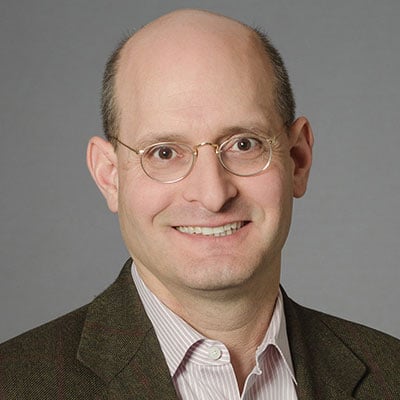IP MVP: Kirkland’s Gregory Arovas
Spansion Inc.'s patent case against Samsung Electronics Co. Ltd. in the U.S. International Trade Commission had the potential to block a wide swath of electronics using flash memory chips from being imported into the U.S., but Gregory Arovas of Kirkland & Ellis LLP helped clear Samsung from the infringement claims and from having any products excluded, earning him a spot on Law360's list of IP MVPs.
Arovas, a partner in the law firm's New York office and the youngest member of its 15-partner global management executive committee at age 44, has served as lead trial counsel in a series of high-profile district court and ITC disputes for Samsung, Apple Inc., Intel Corp., IBM Corp., Oracle Corp. and Alcatel-Lucent.
Used to working on litigation that can span multiple courts across the globe, Arovas said he likes having a lot of venues to play out a strategy, and one advantage with the U.S. legal system is that there are a lot of opportunities to get to trial quickly.
"Just from a domestic strategy, I can put together a number of cases that can have more impact than any single case could," he said.
Arovas has represented Samsung in several disputes with Spansion in the ITC and district court.
After an initial patent settlement between the parties in 2009 was rejected by a bankruptcy judge overseeing Spansion's Chapter 11 case, Spansion moved ahead with an ITC case alleging Samsung and many of its largest customers, including Apple, Lenovo Group Ltd., Research In Motion Ltd. and Sony Corp., infringed four flash memory patents. The complainant sought to bar a range of popular consumer electronics — from Samsung's plasma televisions to Apple's iPods, iPhones and iPads to RIM's BlackBerry smartphones.
"The scope of the case was enormous," said Arovas, who led the Kirkland team in representing Samsung and all its customers except for RIM as lead counsel. "Virtually every electronic device was implicated. Samsung makes close to 50 percent of the worldwide supply of flash memory, and if its products were knocked off the market in the U.S., there would be no substitute."
After Spansion was forced to drop two patents in light of a claim construction order and expert depositions, Arovas secured a win for his clients when the administrative law judge in October 2010 rejected that the remaining two patents were infringed despite a recommendation by the ITC staff that a violation be forced for one of the patents.
Arovas also helped Samsung in its own ITC case alleging Spansion infringed a semiconductor manufacturing patent, and although Spansion filed nine summary determination bids, none of them was successful. In February, the administrative law judge found Spansion imported flash drive products that violated Samsung's patent and issued an exclusion order. The case was eventually settled, along with Spansion's ITC case and two parallel Delaware and Wisconsin federal court actions, according to Arovas.
Intel and other companies relied on Arovas as co-lead trial counsel in disputes with patent-holding firm Wi-Lan Inc. in Texas and California federal courts over Wi-Lan's patents related to Wi-Fi, Bluetooth, DSL and other technology. Although the cases initially involved 21 patents, Wi-Lan lost or dropped claims on 18 of those patents, leaving only three remaining at issue.
Wi-Lan settled claims with Intel weeks before trial in January, with Intel signing a memorandum of understanding to take a multiyear license to Wi-Lan's patent portfolio.
Arovas is also waiting for a decision in an ITC case involving IBM brought by Overland Storage Inc., which alleges IBM and others infringed data storage patents through imported media devices used to back up electronic data and other data storage products.
Because he does a lot of trial work, Arovas says, he excels at focusing on the overall strategy of a case and looking at creative ways to put together different types of claims to maximize leverage for a client. When he gets a new case, he tries to look at it fresh, as if the claims were entirely new, and avoids recycling old arguments he has used in prior cases.
"You can't try the same case over and over again," he said. "Adversaries adjust to that, and it would rob the whole process of creativity. Whether it's using a standards defense; using a nonpatent defense involving fraud, contract or antitrust claims; or using interesting new theories of infringement or invalidity, there are always a lot of ways to go one step beyond what you've done before."
After studying physics and math as an undergrad at the University of Michigan and later earning his law degree there, Arovas began his legal career at Fish & Neave, which is now Ropes & Gray LLP. In 1999, Kirkland asked him to join the firm as a partner and get in at the ground level to grow its IP practice in New York — an offer he couldn't turn down.
"I was able to join an overall practice and firm that had an incredible litigation reputation and many accomplishments, while being part of an office with an IP group that had a very small, startup feel to it," he said.
Arovas has always been fascinated by the technology area and the process of innovation, and he feels fortunate to work on matters that are connected to the core of what his clients are all about — their products and their place in the market.
"I'm representing incredibly talented clients coming up with groundbreaking ideas, and being part of that and their overall strategy is a lot of fun," he said. "That's why I went into this area, and that's why 20-plus years out, I'm happy I did."
REPRINTED WITH PERMISSION FROM THE DECEMBER 8, 2011 EDITION
OF LAW360 © 2011 PORTFOLIO MEDIA INC. ALL RIGHTS RESERVED.
FURTHER DUPLICATION WITHOUT PERMISSION IS PROHIBITED


